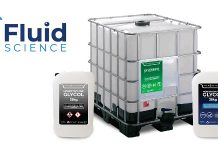For those exporting new chemistry into global markets, the demands of notification regimes in jurisdictions other than the European Union should not be a post REACH afterthought.
Exporters need to be aware of current and emerging notification obligations in their intended markets. Strategic planning at the outset can minimize costs, time to market and manage compliance.
Often, at the marketing stage of bringing chemicals to a global market, companies find themselves unfamiliar with relevant national laws, orders and regulations.
More than twelve jurisdictions (countries) now have controls over the placing of “new” chemicals on the market; awareness and planning for compliance is fundamental to the success of export sales.
The desire to gain access to new markets, if not coordinated; can lead to regulatory non-compliance (with ensuing risks/penalties for the business), and/or broken promises to customers (supply is delayed pending regulatory approval). The REACH adage “No data, no market” applies in an increasing number of jurisdictions.
A global export strategy for a “new” chemical should consider:
• Those jurisdictions with established notification legislation (many);
• Those jurisdictions that are developing chemical notification legislation (several), and
• Changes to existing legislation (plenty), e.g. China’s introduction of Order No. 7, the recasting of South Korea’s notification regime (K-REACH), Taiwan’s revision of their Toxic Chemical Substances Control Act (TCSCA), and there are planned reforms in the US, Japan and other jurisdictions.
An understanding of regulatory requirements is critical to bringing “new” chemicals to the global market, in a timely and cost effective manner.
At the beginning of any notification project there will be a point where, perhaps a Product Manager, a Sales Manager or a Researcher asks “what would it take to sell this chemical in ………..” From this point it is important that the requirements are properly addressed, to avoid wasting time, money and resources on a poorly executed plan that does not fulfil the business’s commercial needs.
The expertise required, time frame and costs for the global notification of a “new” chemical should not be under estimated. Outsourcing to notification experts can be the most cost and time effective solution.
It is rarely practical to submit notifications remotely (a legal entity in the jurisdiction is generally required to be the applicant). Apart from local language, knowledge of local custom and practise is essential.
Regulation of chemicals varies from jurisdiction to jurisdiction, however some basic principles and similarities are common across a number of regimes. Therefore, it makes sense to establish a single notification strategy and manage the differences as required.
Notification of “new” chemicals is performed at the substance/polymer level, not the mixture/preparation level (Serbia is an exception).
Before a substance or polymer can be placed on the market in a jurisdiction that regulates new chemicals, it must:
• Be already listed on the relevant national chemical inventory(ies), or
• By definition it is “new” and must be notified or fulfill exemption criteria, and
• Comply with broader chemical control legislation, such as for safety data sheets, classification, packaging & labeling, transport, marketing & use and/or application specific controls, e.g. food contact, biocide or cosmetic use.
Checking the relevant inventories to see if a chemical is listed is not straight forward, as notifiers can exercise confidentiality claims, and therefore checking a “public“ national inventory is not necessarily conclusive. Contacting the relevant Competent Authority to check the confidential part of an inventory is feasible. There are skills to performing such enquiries, to ensure that the right questions are asked and the right conclusions drawn. Correct characterization of the chemical is fundamental. For mono-constituent substances this maybe straight forward, for multi-constuent substances, substances of unknown or variable composition, complex reaction products, biological materials (UVCB substances) and polymers this can be more challenging. A representative sample is vital for characterization.
It is important that all information on the chemical, such as known properties and impurities, physico-chemical, toxicological and eco-toxicological data is collated as a pre-cursor to a data gap analysis against notification requirements.
When considering the markets for global notification, one should plan the testing and notification strategy at the outset, with a view to minimizing testing by optimizing the use of read across, waiving arguments and Quantitative Structure Activity Relationship (QSAR) tools. An experienced notifier can save a business significant cost by justifying the need not to undertake a prescribed test where the chemistry and supporting data allow “no test” arguments to succeed.
The adoption of OECD Guidelines means that the generation of test/study data is generally harmonized for global use. There are exceptions, e.g. for Japan Ames tests should be performed according to MITI Guidelines, China requires some eco-toxicological studies to be performed in authorized Chinese Laboratories.
For jurisdictions of interest, tonnage per annum, intended applications/use patterns and timelines, should be decided at an early stage. Opportunities for early entry to a market through exemptions, low volume or R&D concessions should be considered, to optimize the strategy for the commercial needs of the business.
The fees charged by Competent Authorities for notifications vary widely but need to be factored into an overall budget.
Official English translations of relevant legislation may not be available. There is no substitute to understanding interpretation of detail via a local expert who has regular contact with the Authorities.
Intertek’s global footprint and regulatory experts in key jurisdictions allows it to undertake notifications with the advantage of local presence, local language and local culture (which helps to get things done, i.e. using the right style/words in submission documents and knowing how to discuss/challenge issues with Competent Authorities). You may have a sound argument or summary of the facts, but if they are not expressed to the expectations of a particular Competent Authority, you risk delays, compromise, even rejection.
A step change in notification requirements is approaching, e.g. South Korea and Taiwan, other jurisdictions are following. Being successful in export markets increasingly means understanding global chemicals management.













